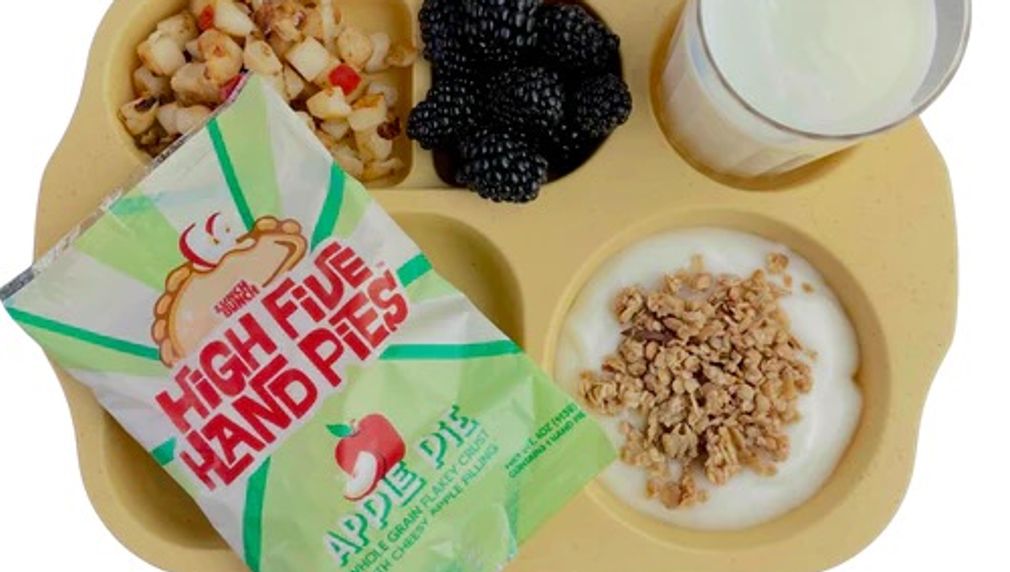Reimagining School Meals With Real Nutrition
Lunch Bunch is launching a new line of healthy, kid-approved school meal products made with sprouted grains, which are more digestible and nutrient-rich than traditional grains. With this grant, we’ll fund product development, pilot the meals in Los Angeles Unified School District (LAUSD), and subsidize costs to ensure affordability. Our goal is to improve student health and food equity by making better ingredients accessible in K–12 cafeterias, creating a replicable model for transforming school meals across Los Angeles County and beyond.

What is the primary issue area that your application will impact?
Income inequality
In which areas of Los Angeles will you be directly working?
LAUSD (select only if you have a district-wide partnership)
In what stage of innovation is this project, program, or initiative?
Pilot or new project, program, or initiative (testing or implementing a new idea)
What is your understanding of the issue that you are seeking to address?
Millions of students rely on school meals as their primary source of daily nutrition. Yet, most school food options are limited in nutritional quality due to budget constraints, regulatory requirements, and lack of innovation in school food procurement. Whole grains are often underused, and sprouted grains—despite offering enhanced nutrient absorption, improved digestion, and lower glycemic response—are virtually absent from school cafeterias due to their higher cost. This gap disproportionately affects low-income and BIPOC communities, where children face higher rates of diet-related diseases such as obesity and diabetes. The current school food system makes it difficult to prioritize long-term health outcomes over short-term costs, reinforcing cycles of poor nutrition and food inequity. There is an urgent need for scalable, affordable food innovations that balance health, taste, and cost—and can be integrated into public school systems.
Describe the project, program, or initiative this grant will support to address the issue.
This grant will support the development and pilot launch of Lunch Bunch’s new sprouted grain food product line, with a focus on implementation in LAUSD. Our goal is to introduce a scalable, health-forward solution that enhances the nutritional profile of school meals. The project will unfold in five phases: R&D, trial production, pilot distribution, cost analysis, and scale-up. We’ll partner with Buena Vista Foods for benchtop testing and trial production runs and work with the California Wheat Commission to source high-quality, local sprouted wheat flour. We will launch at least one sprouted grain food product on LAUSD’s school menu and collect extensive feedback from students, staff, and families. Each product will be kid-tested for taste and usability, and every unit will be subsidized by $0.15 to ensure affordability during the pilot. The initiative is designed to transition out of the subsidy once volume and demand allow for economies of scale. What makes our work unique is the integration of research-backed nutrition with market-ready food products tailored to school operations. Sprouted grains are a proven health upgrade but have rarely been brought to scale for K–12. We are combining our expertise in product development, school food operations, and equity-driven design to bring real innovation to a stagnant space—and ensure that every child, regardless of zip code, has access to better food.
Describe how Los Angeles County will be different if your work is successful.
If successful, this initiative will become a scalable model for introducing nutrient-dense, affordable food products into public school cafeterias—starting in LAUSD schools and expanding across Los Angeles County. Schools will gain access to healthier, kid-approved meals that improve student nutrition, behavior, and academic outcomes. Our products are designed to meet USDA nutritional standards while being both cost-effective and appealing to students. By improving both quality and accessibility, we help school districts overcome long-standing barriers to better food. Over time, we envision a shift in how school meals are sourced, prepared, and valued—particularly in underserved communities disproportionately affected by poor nutrition. This work lays the foundation for a more equitable and sustainable K–12 food system, proving that nutritious school meals can be affordable, scalable, and transformative for the health and success of Los Angeles County’s youth.
Approximately how many people will be impacted by this project, program, or initiative?
Direct Impact: 2,000
Indirect Impact: 6,000